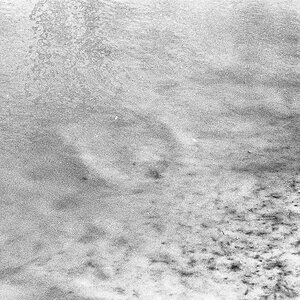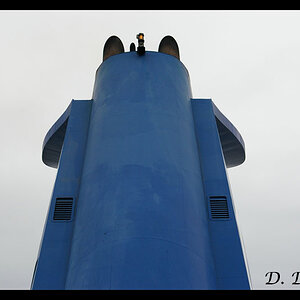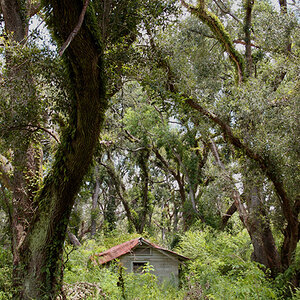Navigation
Install the app
How to install the app on iOS
Follow along with the video below to see how to install our site as a web app on your home screen.

Note: This feature currently requires accessing the site using the built-in Safari browser.
More options
You are using an out of date browser. It may not display this or other websites correctly.
You should upgrade or use an alternative browser.
You should upgrade or use an alternative browser.
Are cell phones as good as DSLRs? My friend says 'yes'.
- Thread starter Lightsped
- Start date
- Status
- Not open for further replies.
- Joined
- Aug 15, 2013
- Messages
- 13,695
- Reaction score
- 3,369
- Location
- SE Michigan
- Can others edit my Photos
- Photos OK to edit
Personally, I would like to see a thesis or dissertation paper on this from Photoguy
which should contain actual research and actual analysis..
xzyragon
No longer a newbie, moving up!
- Joined
- Apr 9, 2014
- Messages
- 330
- Reaction score
- 125
- Location
- La Jolla, CA
- Website
- www.facebook.com
- Can others edit my Photos
- Photos OK to edit
Oh shoot. I was all wrong. I didn't realize that 'better' means 'more expensive'.
My bad.
a starting DSLR kit is around $400 - $500 new, and you can pick up a starter kit with a couple OK lenses for $700 or $800. If you're looking in the used market it's a helluva lot cheaper. A new smartphone is $700 or $800.
The best camera for capturing the moment is the one you have with you. My best camera is my 7D, so I routinely have it with me.
waday
Do one thing every day that scares you
- Joined
- Jul 21, 2014
- Messages
- 7,485
- Reaction score
- 3,599
- Can others edit my Photos
- Photos NOT OK to edit
Research and analysis would actually be really interesting to see.Personally, I would like to see a thesis or dissertation paper on this from Photoguy
which should contain actual research and actual analysis..
I doubt it would support his hypothesis.
photoguy99
No longer a newbie, moving up!
- Joined
- Mar 20, 2014
- Messages
- 1,485
- Reaction score
- 313
What? Research? I've restated some trivially verifiable facts and drawn some equally trivial conclusions from them.
That's not really a 'research' or ' thesis' deal. I've done the former and written the latter so I have a rough idea.
Pray tell, what question would this research project propose to answer?
That's not really a 'research' or ' thesis' deal. I've done the former and written the latter so I have a rough idea.
Pray tell, what question would this research project propose to answer?
JerryLove
No longer a newbie, moving up!
- Joined
- Jan 1, 2014
- Messages
- 413
- Reaction score
- 50
- Location
- Tampa
- Can others edit my Photos
- Photos OK to edit
Pray tell, what question would this research project propose to answer?
Is this claim true: "Even you guys use your cell phone cameras more than your DSLRs" (post #106)? Anecdotal responses suggest it's not
Is the obvious implied claim true "Greater use = as good as or better"?
Can something be authoritatively claimed to be the standard and, if so, does greater-use on that standard = better? "Facebook (social media, more generally) is the standard." (post #92)
Did you, in fact, "stop now" (post #96)
Is this a correct definition of photography and how can we establish it? It's not supported (in exclusion of others) by English: "What you think of as irrelevant snaps by the unwashed masses, that's 'photography'." (post #98).
Indeed: "What is photography", which you have just assumed, seems worthy of its own research paper.
Can you prove "[there is] no camera enthusiast who isn't desperate to justify his purchases." (post #63). Doesn't this conflict directly with your claims that Daryll posts accurately?
Are cellphone cameras capable of a more extreme DoF than DSLRs? (post #73)
Are ergonomics better on a cellphone than a DSLR? (post #73)
Can connectivity be "waived aside" when determining a better "camera", or is that an intrinsic part of what makes a camera good or bad? (post #73)
Is this *the* definition of photography? It's not supported by any dictionary "Photography is immediate. It's now. It's at least as much about frictionless sharing as anything else. " (post #79).
Also: Can these meta assertions be supported?
"You're all refusing to see my starting point because you feel attacked. "
"this is the internet and disagreement = attack, and must be replied to with vigorous counter attack."
"I'm more qualified to judge soundness than you guys are. "
"you can't follow my argument. I assure you that it's sound"
That's only half the thread. Should I go on?
Your facts are not trivial, especially not your assumed ones. You simply assume that things are however you chose to define them; even when that equivocation is unique to yourself. You've covered almost every logical fallacy in the book including but not limited to: Straw-man, Appeal to authority, Ad hominem, and Equivocation (all evidenced above).
photoguy99
No longer a newbie, moving up!
- Joined
- Mar 20, 2014
- Messages
- 1,485
- Reaction score
- 313
Just listing a bunch of stuff you disagree with isn't the same thing as writing research proposals.
A bunch of that stuff is just definitions which we disagree on, and for which your definition is silly. Regardless there's no right or wrong, there's no research or thesis.
You really have a bug up your butt about the statement that you guys use your cells a lot. You need to reread other people's posts where several people clearly stated that as a fact of their lives. I was obviously just echoing those statements.
In general context matters. Especially in an informal setting like an internet forum. I write assuming that your familiar with the earlier remarks in the thread.
Other parts are just quoting mild hyperbole and raging against an obviously wrong literal reading. 'Everyone' often means 'a lot of people' or 'most people' in colloquial phrasing, for example, but you insist that I mean it literally (maybe not that exact word and usage, but several similar ones) and then complain that it's not literally true. Duh.
Just listing a bunch of fallacies and attributing them to me doesn't accomplish anything. Especially when you get them wrong.
But, try on petitio principii for yourself. I've pointed it out a couple of times, so no need to belabor the details here.
And on and on. Do I need to be worried that you're a psycho stalker here or do you just have an incredible amount of free time on your hands to pull this sort of post together?
I assume that you're just performing for the audience here, counting some imagined coup, but, whoa.
A bunch of that stuff is just definitions which we disagree on, and for which your definition is silly. Regardless there's no right or wrong, there's no research or thesis.
You really have a bug up your butt about the statement that you guys use your cells a lot. You need to reread other people's posts where several people clearly stated that as a fact of their lives. I was obviously just echoing those statements.
In general context matters. Especially in an informal setting like an internet forum. I write assuming that your familiar with the earlier remarks in the thread.
Other parts are just quoting mild hyperbole and raging against an obviously wrong literal reading. 'Everyone' often means 'a lot of people' or 'most people' in colloquial phrasing, for example, but you insist that I mean it literally (maybe not that exact word and usage, but several similar ones) and then complain that it's not literally true. Duh.
Just listing a bunch of fallacies and attributing them to me doesn't accomplish anything. Especially when you get them wrong.
But, try on petitio principii for yourself. I've pointed it out a couple of times, so no need to belabor the details here.
And on and on. Do I need to be worried that you're a psycho stalker here or do you just have an incredible amount of free time on your hands to pull this sort of post together?
I assume that you're just performing for the audience here, counting some imagined coup, but, whoa.
photoguy99
No longer a newbie, moving up!
- Joined
- Mar 20, 2014
- Messages
- 1,485
- Reaction score
- 313
Also, I have decorously ignored this, but do you seriously not get that smaller sensors yield greater DoF?
There are some technical details you should state if you're a pedant up to and including 'if you are in a universe with these constants', but the statement as it stands is meaningful and well understood.
There are some technical details you should state if you're a pedant up to and including 'if you are in a universe with these constants', but the statement as it stands is meaningful and well understood.
W.Fovall
No longer a newbie, moving up!
- Joined
- Apr 17, 2014
- Messages
- 239
- Reaction score
- 86
- Location
- San juan Capistrano, CA
- Website
- www.fovallwilliam.com
- Can others edit my Photos
- Photos OK to edit
And now for something completely different
JerryLove
No longer a newbie, moving up!
- Joined
- Jan 1, 2014
- Messages
- 413
- Reaction score
- 50
- Location
- Tampa
- Can others edit my Photos
- Photos OK to edit
I know as absolute fact that your claim above is false.Also, I have decorously ignored this, but do you seriously not get that smaller sensors yield greater DoF?
There are some technical details you should state if you're a pedant up to and including 'if you are in a universe with these constants', but the statement as it stands is meaningful and well understood.
I am completely certain that I can take my full-frame Canon 6D, put my 50mm f1.2 lens on it, put it on a tripod and take a picture. I know that I can then take my T2i, put the same lens on it, mount it on the same tripod, and get the exact same DoF.
The AoV was different; obviously. The resolution was different (better on the T2i once I cropped the 6D pic to match composition), but the DoF was completely unchanged.
This is a trivial thing and you cannot manage to understand it.
JerryLove
No longer a newbie, moving up!
- Joined
- Jan 1, 2014
- Messages
- 413
- Reaction score
- 50
- Location
- Tampa
- Can others edit my Photos
- Photos OK to edit
You asked what questions could be answered. I gave you a bunch. You are desperately dodging. It's kinda pathetic actually.Just listing a bunch of stuff you disagree with isn't the same thing as writing research proposals.
photoguy99
No longer a newbie, moving up!
- Joined
- Mar 20, 2014
- Messages
- 1,485
- Reaction score
- 313
I know as absolute fact that your claim above is false.Also, I have decorously ignored this, but do you seriously not get that smaller sensors yield greater DoF?
There are some technical details you should state if you're a pedant up to and including 'if you are in a universe with these constants', but the statement as it stands is meaningful and well understood.
I am completely certain that I can take my full-frame Canon 6D, put my 50mm f1.2 lens on it, put it on a tripod and take a picture. I know that I can then take my T2i, put the same lens on it, mount it on the same tripod, and get the exact same DoF.
The AoV was different; obviously. The resolution was different (better on the T2i once I cropped the 6D pic to match composition), but the DoF was completely unchanged.
This is a trivial thing and you cannot manage to understand it.
I understand it perfectly well. You are talking past me. You probably understand that we're talking about two different things, and I certainly do.
You are denying it, however. I don't know if you're stupid or just determined to count coup. Luckily, I don't care.
W.Fovall
No longer a newbie, moving up!
- Joined
- Apr 17, 2014
- Messages
- 239
- Reaction score
- 86
- Location
- San juan Capistrano, CA
- Website
- www.fovallwilliam.com
- Can others edit my Photos
- Photos OK to edit
Larger sensor gets a shallower DOF.. This has been know for ever and Tony Northrup did a video on YouTube to help understand the math.
JerryLove
No longer a newbie, moving up!
- Joined
- Jan 1, 2014
- Messages
- 413
- Reaction score
- 50
- Location
- Tampa
- Can others edit my Photos
- Photos OK to edit
You don't understand a rather important part of that math... "for the same composition".Larger sensor gets a shallower DOF.. This has been know for ever and Tony Northrup did a video on YouTube to help understand the math.
Thought experiment.
If all the pixels on the outside of my FF Canon 6D's sensor just broke. The inner pixels would capture a different DoF?!?
How does a pixel in the center of my sensor know whether a pixel on the outer edges of my sensor is working or not? What magic changes the light hitting a point on the sensor's plane based on whether a different part of the sensor is working or even exists?
From CambridgeInColour "As sensor size increases, the depth of field will decrease for a given aperture (when filling the frame with a subject of the same size and distance). This is because larger sensors require one to get closer to their subject, or to use a longer focal length in order to fill the frame with that subject. " (Digital Camera Sensor Sizes: How it Influences Your Photography
Note the part bolded by them. The sensor has no *direct* relationship to DoF. It's indirect and based on other factors. What you think you know is wrong.
- Status
- Not open for further replies.
Similar threads
- Replies
- 4
- Views
- 387
- Replies
- 9
- Views
- 227
- Replies
- 0
- Views
- 424




![[No title]](/data/xfmg/thumbnail/41/41929-26c4134c150c4c6befd5f544a5223aaf.jpg?1619739946)



![[No title]](/data/xfmg/thumbnail/36/36680-2f2b1d32244516c9d5cf39af9b78b382.jpg?1619737677)

![[No title]](/data/xfmg/thumbnail/40/40286-86401b94de8b01bea8bb4ea154aaea0a.jpg?1619739408)


